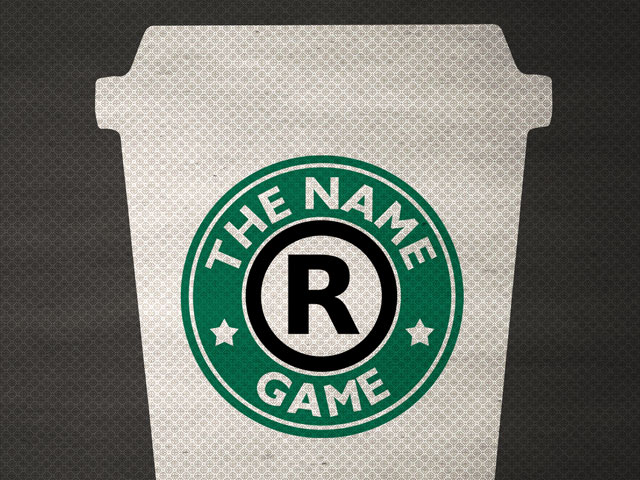This article originally appeared in Sellebrity, Volume 1, Number 1.
Athletes, entertainers, and celebrities have tremendous value in their own name. Fans know who these people are often before the person obtains the financial benefits of stardom, and others will attempt to profit from the use of a celebrity’s name in a number of ways. Improper exploitation of a celebrity’s name, likeness, and image can be shut down if proper action is taken, and the support team around the public persona remain vigilant.
In a recent move, UFC Champion Conor McGregor, through his company McGregor Sports and Entertainment, filed trademark requests for his name and ‘The Notorious’, his nickname. McGregor is a recent example in a long string of athletes and celebrities who have locked up their name with the United States Patent and Trademark Office (USPTO). Trademarking their name is becoming more commonplace for entertainers and athletes, and the practice is becoming big business. The USPTO allows people to trademark any “word, phrase, symbol, or design, or a combination thereof, that identifies and distinguishes the source of the goods of one party from those of others.” Similarly, the USPTO allows protection of service marks. Service marks are the same as trademarks, except that it identifies and distinguishes the source of a service rather than goods. Athletes are trademarking their names for both trade and service marks for various reasons.
Like entertainment before it, sports has become big business for the talent, and it hasn’t stopped with the final whistle. Athletes are becoming more adept in business, and they are branding themselves strategically to set up their post athletic careers. In addition to their names, athletes are protecting their nicknames. Hall of Fame baseball player Randy Johnson received a trademark for ‘The Big Unit’. NBA player Jeremy Lin secured ‘Linsanity’, Darrell Revis owns the rights to ‘Revis Island’, Super Bowl champion Marshawn Lynch has ‘Beast Mode’. Even Tim Tebow received a trademark for ‘Tebowing’.
These filings have helped celebrities manage their rights, even with the proliferation of social media and the internet. In 1999, Congress passed the Anti-Cybersquatting Consumer Protection Act. Under the Act, a trademark owner can collect damages, and discourage an infringing domain name that is identical or similar to a distinctive or famous trademark. Athletes have gone on the offensive to protect their digital rights utilizing this law. Venus and Serena Williams were able to take back domain names, and social media companies have been responsive in shutting down accounts when a trademark owner finds accounts that infringe.
Athletes and entertainers have done more than just take back domain names. Some, like Shaquille O’Neal who received a trademark for his signature, license out their name (or in his case, his signature). Others look to create and license out their mark in various ways. McGregor claims he intends to use the ‘Connor McGregor’ mark “with products such as aftershave, video games, books, clothing, restaurants, barbershops and health clubs.” Regardless of how McGregor ends up using the mark, it will protect him from others capitalizing on his name without his consent.
Some athletes have not taken advantage of the opportunity they have to register their names, and it has caused problems and confusion. Indianapolis Colts quarterback Andrew Luck, has not protected his name. A person looking to capitalize on the race to the bottom by teams so they could draft Luck, registered “Suck for Luck”, and received the mark. Additionally, the United States Supreme Court in June ruled that even offensive marks can be registered. This means that entertainers and athletes (including leagues, teams, bands, performance groups, and individuals) should keep their marks current and be active in defending their marks to avoid squatters or others looking to capitalize quickly on the visibility of talented individuals.
While entertainers and athletes becoming savvier, action is often taken well after they should. With musicians or players who are getting their first taste of stardom, they should look to protect their names before they reach their peak. It is never too late to lock up their trademarks, but the earlier they do it, the more advantage they will have.
A few steps can help entertainers and athletes (and their advisors) protect their intellectual property rights before they become problematic:
- With your lawyer, discuss securing trademarks for your name, nickname, logo, and other images associated with you and that you earn an income.
- Strategize with your lawyer, business manager, and marketing agent to determine how you plan on capitalizing on your name, image, and likeness apart from your team/band/employer.
- Work with your lawyer, business manager, and financial advisor to set up a holding company for your intellectual property.
- Develop a game plan with your lawyer, marketing agent, and commercial agent on how you will work with brands looking to endorse you, and stopping others from using your name, image, and likeness without your permission.
There are a lot of different scenarios that can occur when working with athletes and entertainers regarding their intellectual property. These talented professionals should have a forward-thinking team working with them and protecting their intellectual property so they can focus on honing their craft and being the best in the world at what they do. When handled correctly, athletes and entertainers can make their on-field/stage income last a lifetime by creating additional revenue streams that may rival their income from their primary profession.
– – – – –
Author Brandon Leopoldus is an is a California-based attorney protecting the assets, reputations, and transactions of businesses and individuals including athletes and entertainers. He is with the firm of Gerard Fox Law P.C. based in Los Angeles, and works regularly out of the firm’s other offices in New York City and Washington, D.C. Leopoldus is the Regional Captain of the Sports Lawyers Association, and has worked with Super Bowl Champions, Hall of Famers, MLB All-Stars, All-Americans, nationally recognized recording artists, actors, producers, directors, and other talented clients. He can be reached at BLeopoldus@GerardFoxLaw.com.

